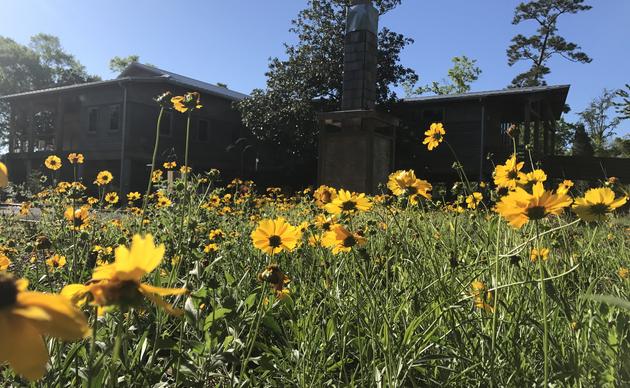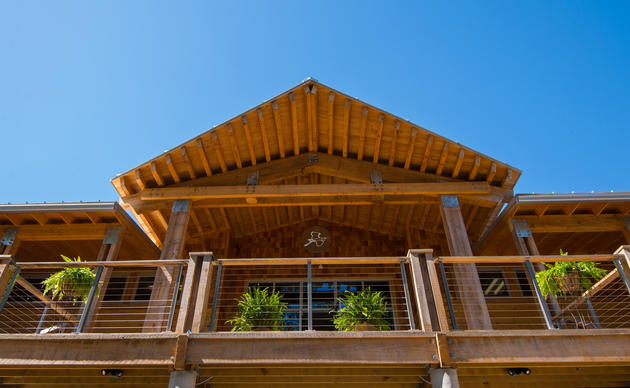In the spring, the Mississippi Gulf Coast becomes mating ground for the migratory least tern. Males court females by presenting a fish, a sort of proposal. If the female accepts the fish, they mate and colonize with other birds for safety. Once the female’s eggs have hatched, the male and female take turns caring for the chicks who are extremely vulnerable, especially to the heat, being taken by crows, and getting stepped on by beachgoers. Plus, if the parent birds are scared off by beachgoers, the chicks can die almost immediately from heatstroke. Therefore it’s imperative we do our part when we’re frequenting our beaches in the spring and summertime months to protect these birds and their nests.
But why should we care about the least terns and other birds?
“Not only are birds inspiring and good for our spirits, they are great indicators of the health of the environment and ecosystem around us,” says Sarah Pacyna, Program Director for Audubon Mississippi’s Coastal Bird Stewardship. “If birds aren’t present, people shouldn’t be here either,” she continues.
According to Pacyna, a lack of awareness is primarily to blame for the threats faced by bird populations on the Gulf Coast. The Coastal Bird Stewardship uses a grassroots approach to conservation, working to build constituents and advocates for healthy populations of coastal birds and protection of their habitats and the ecosystems on which they depend. Specifically, it promotes the management and conservation of coastal birds through:
- volunteer engagement
- citizen science
- research and monitoring
- capacity building
- strategic partnerships
This work is made possible by a grant from the National Fish and Wildlife Foundation with support from the Mississippi Department of Environmental Quality. After the 2010 Deepwater Horizon oil spill, thousands of birds from dozens of species were killed, raising awareness of the exacerbating plight facing coastal birds and their habitats. In 2014 the National Audubon Society created the Audubon Mississippi Coastal Bird Stewardship Program to study and safeguard coastal birds and their habitats.
With only a handful of employees, the stewardship program relies heavily on volunteers from the three coastal counties to help protect beach-nesting bird sites and educate beach-goers, especially during the summer months. In addition to working in the field, volunteers can help by simply spreading the word, posting flyers, hosting training sessions, recruiting additional volunteers and participating in beach clean-ups. In the winter months, volunteers assist with monitoring migrant and winter birds in the area.
“Besides protecting the nesting areas on the beach, I like speaking to interested groups about coastal birds and volunteering for the Stewardship Program,” says Sally Puent, current Stewardship volunteer.
The roped-off beach areas and signs about nesting birds caught Puent’s eye when she moved from Oregon, and she was so impressed she wanted to join the effort. Puent’s advice to others is to join our Mississippi Audubon Chapter and participate in the bird watching outings, lectures and other educational opportunities.
“Consider volunteering,” she urges.
Residents and visitors can play a role in protecting nesting shore birds on the Gulf Coast by paying attention to posted and roped off nesting areas and keeping a distance from them. Furthermore, interested individuals are invited to attend training sessions to simply learn more about shore bird conservation, without becoming a volunteer.
When asked how to combat the lack of awareness and apathy towards shore bird conservation, Pacyna responded “Start young. Get children involved by creating a foundation of love and respect for the outdoors and wildlife. Children can educate family and friends better than any organization can.”
For volunteer opportunities contact us at (228) 475-0825 or prac@audubon.org.
For more information about Audubon Mississippi and the Coastal Bird Stewardship Program visit www.ms.audubon.org.




